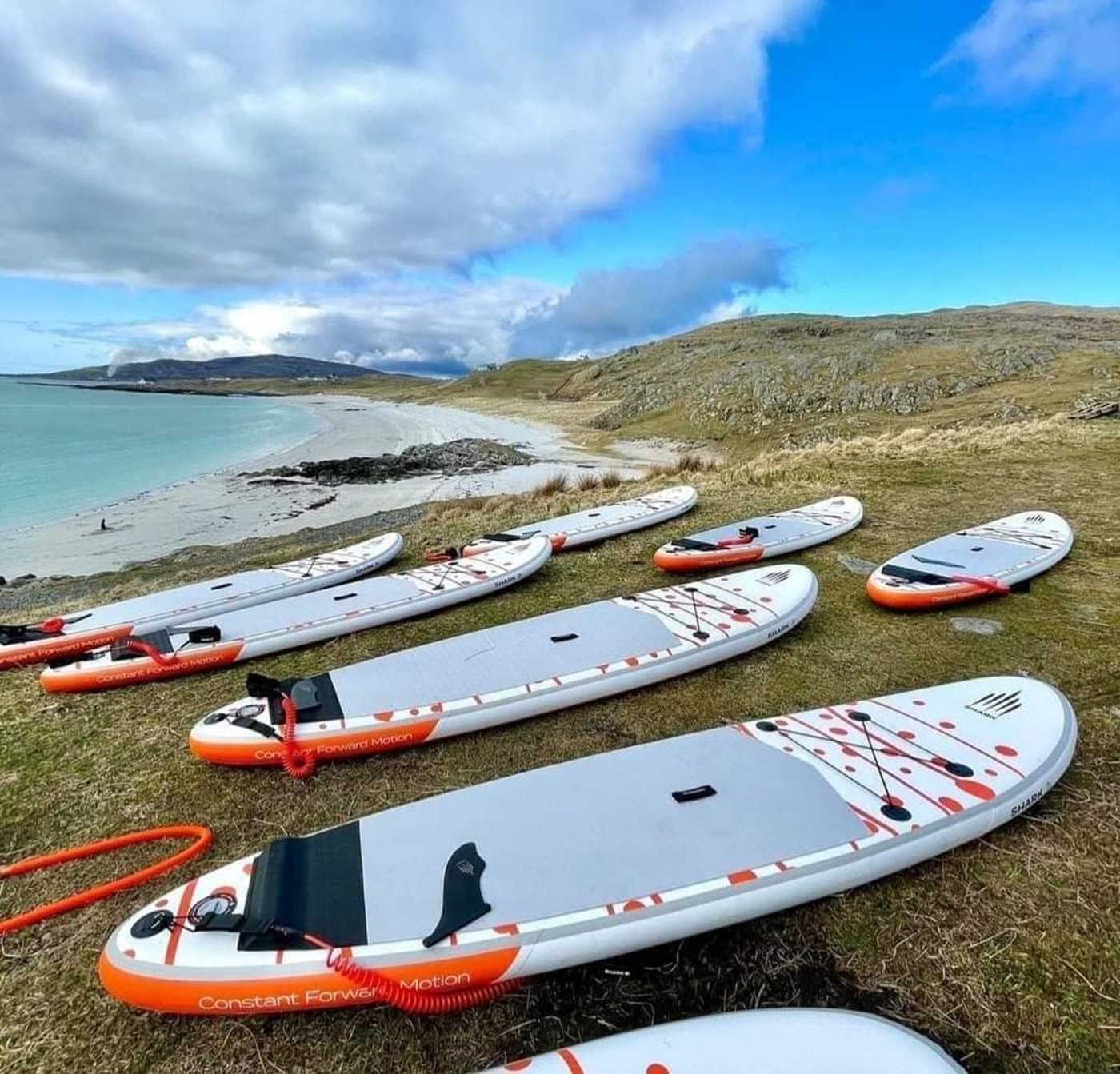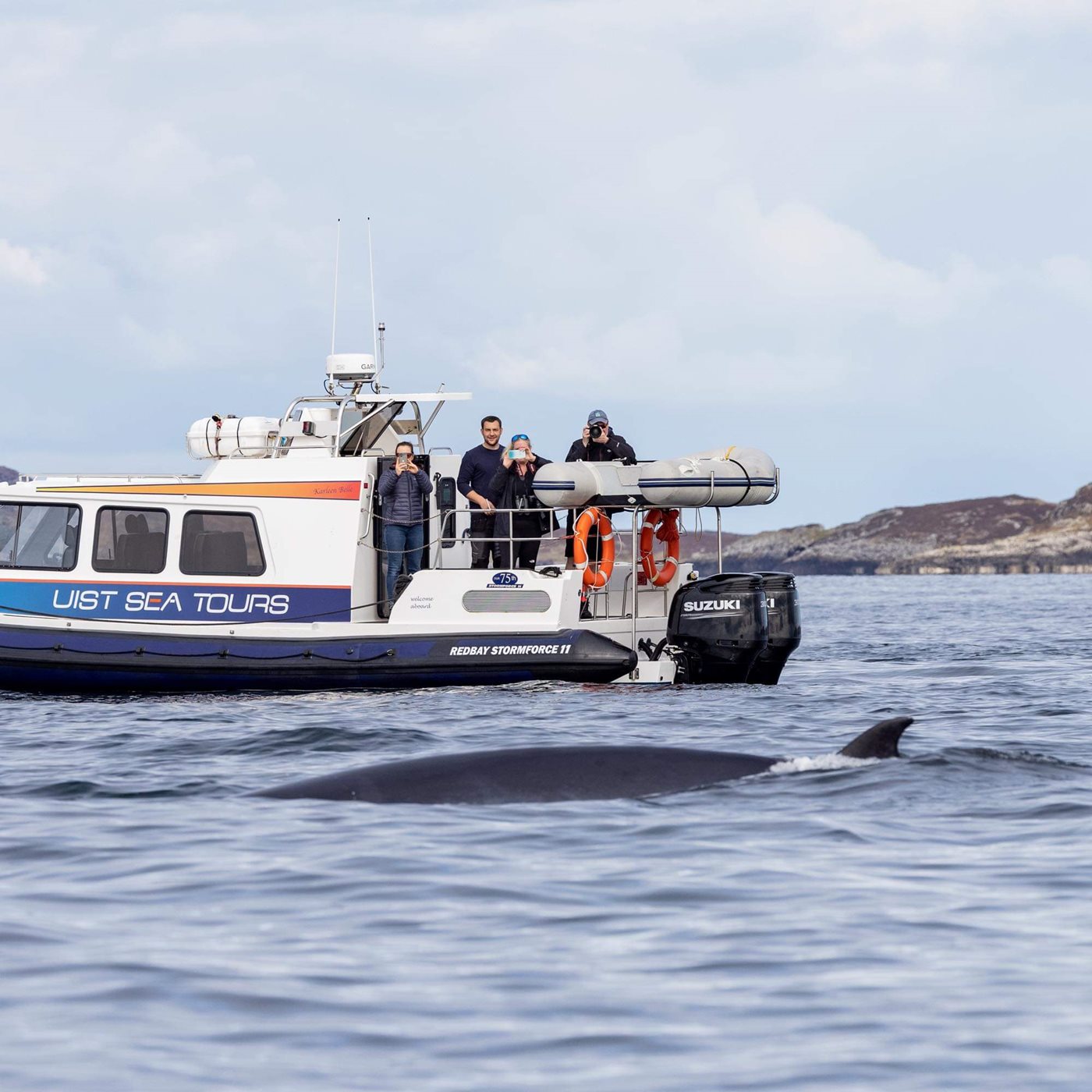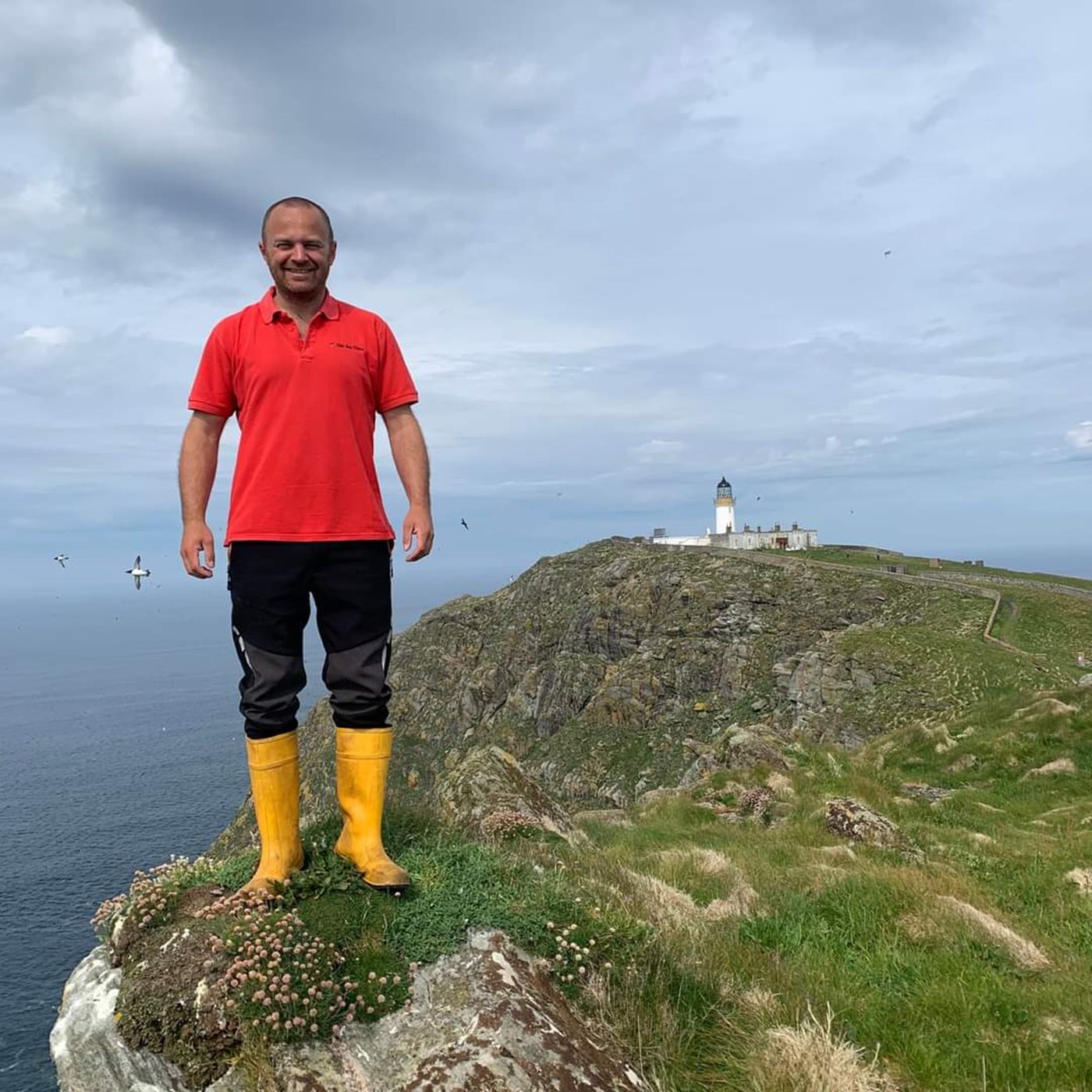That symbiotic relationship, that connection to the sea, landscape and culture of South Uist is truly authentic in David and his business.
The sea runs through David Steele’s veins. Generations of his family have made their livelihood, understanding and respecting what the sea has to offer.

Sustainability at the heart
Built on generations of fisherman’s knowledge, he branched out into sea tours to share his passion for his place, his pride in the culture of the Hebrides and his love of the wildlife around its shores. The resident dolphins know him as much as he knows them.
He seeks to give his guests the best and really importantly, safest experience, for guests, whilst ensuring his business is sustainable. His respect for the wildlife he shares with visitors, means he complies with all codes of conduct. His commitment to being more sustainable means he has made changes to the boat’s engines to ensure it is more fuel efficient. He berths as far west as possible on the island to ensure the trips can themselves give the shortest route to wildlife watching areas. His connection to the fishing community means they can provide him with intelligence as to where sightings may be, again ensuring efficient trips. He seeks to have plastic free trips, having seen first-hand some of the debris that does unfortunately wash up on Western Isles shores.

Tourism appeal and challenges
The Western Isles are a dream destination but at times a nightmare to get to. The rising cost of holidays to the islands is a deterrent, never mind the often problematic vulnerability of the ferry service, although this is itself a feature of island life, David accepts sanguinely. Although the constant negative discussion in the press on these matters may itself be a deterrent to potential visitors.
However, in true island style David has that flexibility and adaptable approach, with new additions to his core sea tours business. He trained in paddleboarding in order to offer an environmentally sensitive activity, getting people even closer to the sea. He is teaming up with local accommodation and wildlife tour guides to offer walks for the land-lovers as new products in the coming year.
With concerns about how the island is being marketed he sees a lot of tourism that offers very little back to the economy, such as some types of camper vanning and the Hebridean Way is not as embedded in the local economy as it could be. There are opportunities too for new products especially in the off-season with great dark open skies for stargazing and northern lights viewing, another way of helping people connect with the natural world. Some support and assistance with developing and marketing such products would really help. The role of community companies needs to be better realised and supported by government, if local solutions to climate change and developing the rural economy are to be found.

Seeking balance
David has a passion and authenticity that can never be replicated and a sensitivity about the people and place he lives and work in and a deep commitment to values he wishes to develop in his business.
Looking to expand to more efficient boats that will also ensure more sustainable, safer yet equally sensitive to nature. Access to information on grants available and indeed more support for vulnerable employment and indeed increase and create new jobs is vital for David to continue to keep island life alive for him, his business, his community and the guests who come to experience it.
Registered Company No: 303299 | Registered address: Wild Scotland, Wester Camerorie, Ballieward, Grantown-on-Spey, PH26 3PR

